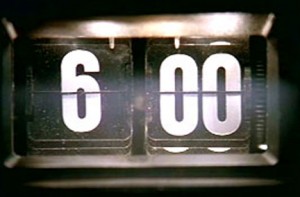 Groundhog Day is one of those movies that I will watch any time I come across it on TV. I have been thinking about why.
Groundhog Day is one of those movies that I will watch any time I come across it on TV. I have been thinking about why.
Groundhog Day is a 1993 romantic comedy directed by Harold Ramis and staring Bill Murray and Andie MacDowell. It was well received on release, but as is often the case with significant movies, it took a while to sink in. The movie critic, Roger Ebert, has raised his estimation of Groundhog Day; the literary critic, Stanley Fish, includes it as one of only two movies since 1958 on his top ten list; and spiritual leaders in several traditions use the movie in their teaching.
Harold Ramis states, “At first I would get mail saying, ‘Oh, you must be a Christian because the movie so beautifully expresses Christian belief.’ Then rabbis started calling from all over, saying they were preaching the film as their next sermon. And the Buddhists! Well, I knew they loved it because my mother-in-law has lived in a Buddhist meditation centre for 30 years and my wife lived there for five years.” Despite being made at the end of the twentieth century, it has become a defining movie of our emerging twenty-first century.
Bill Murray plays Phil Connors, an obnoxious, self-centered television weatherman assigned to go to the small town of Punxsutawney, Pennsylvania to cover Groundhog Day, the day when a groundhog emerges from hibernation and does or does not see its shadow, thus predicting when spring will come. Andie MacDowell plays Rita, his patient producer and eventual love interest.
For no reason given in the movie, Phil finds himself repeating Groundhog Day over and over. He wakes up each morning to find that it is not tomorrow, but once again February 2. He remembers “yesterday’s” February 2, but no one else does. He is at first terrified. He sees a psychiatrist. Perhaps he has a brain tumor.
Then it starts to get wearing. Sitting in a bar, he remarks, “I was in the Virgin Islands once. I met a girl. We ate lobster, drank pina coladas. At sunset, we made love like sea otters. That was a pretty good day. Why couldn’t I get that day, over and over and over?” Phil looks for ways to deal with his situation. He tries hijinks, stealing money, exploiting people, casual sex, conning his love interest. Then, in despair, suicide, again and again. But he keeps waking up on the same morning. The film does not specify how many times he repeats the day, but from what he eventually masters—playing the piano, French romantic poetry, ice sculpting, flipping cards into a hat, it is at least several decades. Finally Phil decides to use his situation to become a decent person. He finds joy, and on the culminating day, he rushes from place to place to help people. He plays piano and is the center of attention at the Groundhog Day evening party, wins the girl, and escapes the repeatedly cycling day.
The meaning of this repeated experience? Here is one thought. In his book, The Gay Science, Nietzsche asks: “What, if some day or night a demon were to steal after you into your loneliest loneliness and say to you: ‘This life as you now live it and have lived it, you will have to live once more and innumerable times more’… Would you not throw yourself down and gnash your teeth and curse the demon who spoke thus? Or have you once experienced a tremendous moment when you would have answered him: ‘You are a god and never have I heard anything more divine.’”
Nietzsche is not here concerned with some very different model of the universe, but with our universe, our lives, here and now. He is not saying, “In this theory, this is how your life works,” but rather “How would you live your life if it were to work this way.” If you were going to relive this day over and over forever, you would want it to be a very good day. A day of pleasure, as in “I was in the Virgin Islands once?” Perhaps. But maybe even better than that, the climatic day of Groundhog Day, a day of not only pleasure, but of joy over having done a decent job of creating yourself and your life. Nietzsche suggests that is how we should live every day, as though we were going to be living it over and over and over.
Steve Jobs put it slightly differently in his 2005 Stanford commencement address a year after being diagnosed with cancer and six years before his death when he said, “I have looked in the mirror every morning and asked myself: ‘If today were the last day of my life, would I want to do what I am about to do today?’ And whenever the answer has been ‘No’ for too many days in a row, I know I need to change something.”
The movie critic Roger Ebert, revisiting Groundhog Day, concludes his essay: “We see that life is like that. Tomorrow will come, and whether or not it is always Feb. 2, all we can do about it is be the best person we know how to be. The good news is that we can learn to be better people.”

Leave a Reply